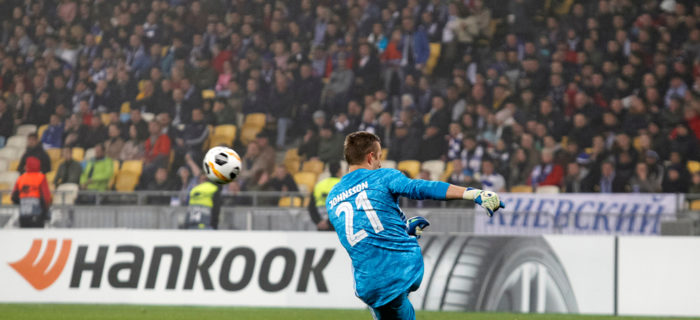The Danish Superliga is the leading form of league football in Denmark. This is under the operation of the Danish Football Association and there are 14 teams each season battling it out in the Danish Superliga to try and come out on top of the rankings. Danish Superliga Betting can be a lot of fun!
The history of the Danish Superliga
It was back in 1991 that the Danish Superliga was initially created, taking the place of the Danish 1st Division as being the leading league for football in the nation.
At the beginning, there were just ten teams battling it out against each other in the Danish Superliga. For a number of seasons, there was a split in the season which would see the winners decided over the course of two years.
It was in 1995/1996 that the number of teams in the Danish Superliga was brought up to a dozen. This saw each team playing each other a total of three times in a given season, meaning that there was a total of 33 games each year. Coca-Cola was the sponsor of the league at that time, changing after that season.
Throughout the intervening years, there have been a number of main sponsors for the Danish Superliga including Coca-Cola, Faxe Brewery, SAS, Alka and 3F.
The old format of the league
There were a dozen teams taking part in the Danish Superliga from 1996 until 2016, with each team playing one another a total of three times in a single season. The teams that were in the last two places in the league table by the end of the year would then drop down to the second tier of football in Denmark, the Danish 1st Division.
This would see the two leading teams in this second-tier league taking the place of those relegated from the Danish Superliga.
The determining factor on how many home games a team would have in the proves format would depend on the team's finishing position in the previous season. If a team finished in the top six places would then play 17 home games and 16 away games the following season.
The current format of the league
It was for the 2016/2017 season that the number of teams taking part in the Danish Superliga was brought up to its current level of 14. This was done through relegating just a single team from the Danish Superliga and then giving promotion to the top three teams in the second tier of Danish football.
This new format saw each team playing 26 games during the course of a season, with each team playing one another once at home and once away. Then there would be a split into a six-team playoff championship series and with eight teams going into a qualifying play-off. The goals scored and points accumulated by the teams would carry over into these playoff series.
With the championship play-off, each team plays one another home and away. Whoever comes out on top of the rankings following the culmination of all these games will then be crowned as the winner of the Danish Superliga. This carries a place in the UEFA Champions League qualifying round two.
The team that comes second will go into the initial qualification round of the Europa League. The team in third place will go into a play-off for a place in the Europa League qualification rounds.
There will be two groups of four teams for the qualifying side of the league. The winners from these groups play one another, with the winner then playing the 3rd place finisher in the Championship play-offs for the final Europa League qualification spot.
The two teams at the bottom of the two qualifying tables will take part in a relegation play-off series, with the two losers being relegated down to the second tier of Danish football.
Betting on the Danish Superliga
The way in which the Danish Superliga is structured makes for an exciting experience. There will not be a runaway winner in the regular season usually, as there is still the play-off series to look forward to.
The games in these play-off series, in particular, carry a lot of weight and this makes for a great betting experience. You can carry an edge of excitement into these games when you bet on them, even if you are not a supporter of any of the teams in the Danish Superliga.
Most of the leading bookmakers will properly offer a wide range of markets for these Danish Superliga fixtures. For more advice on gambling and betting visit Roger.com.





